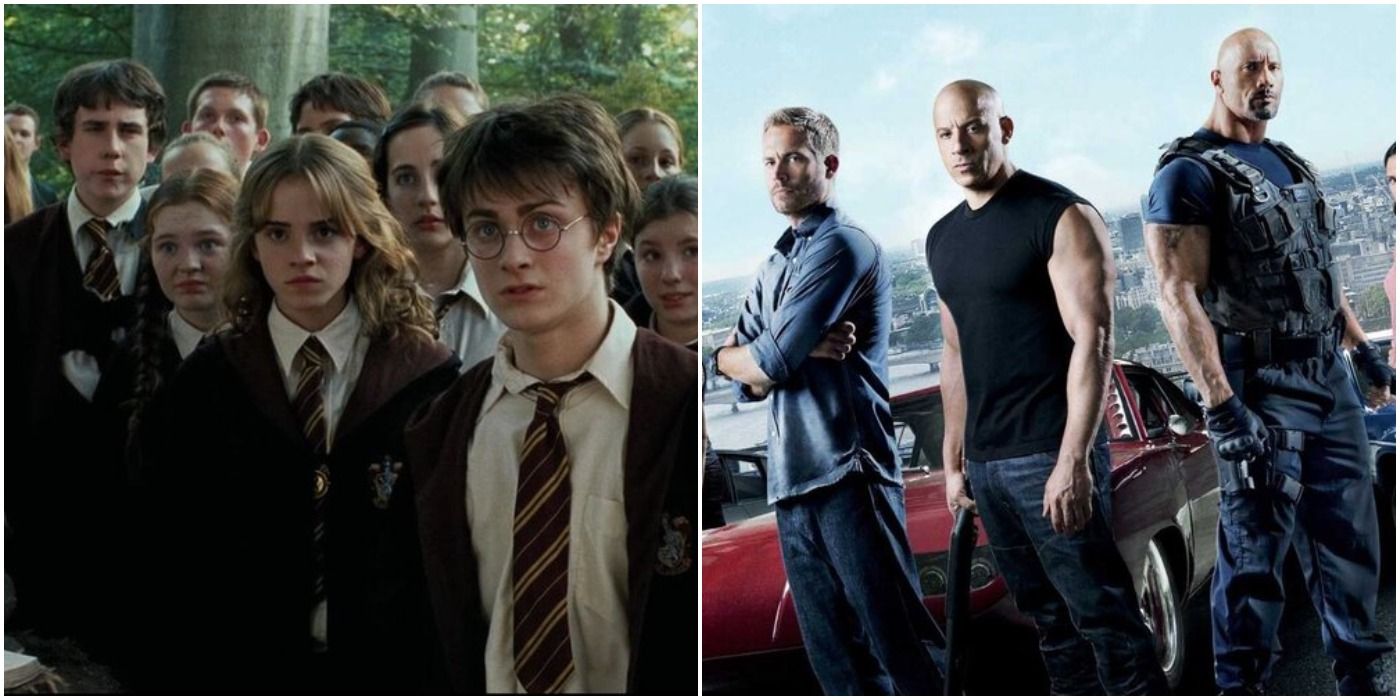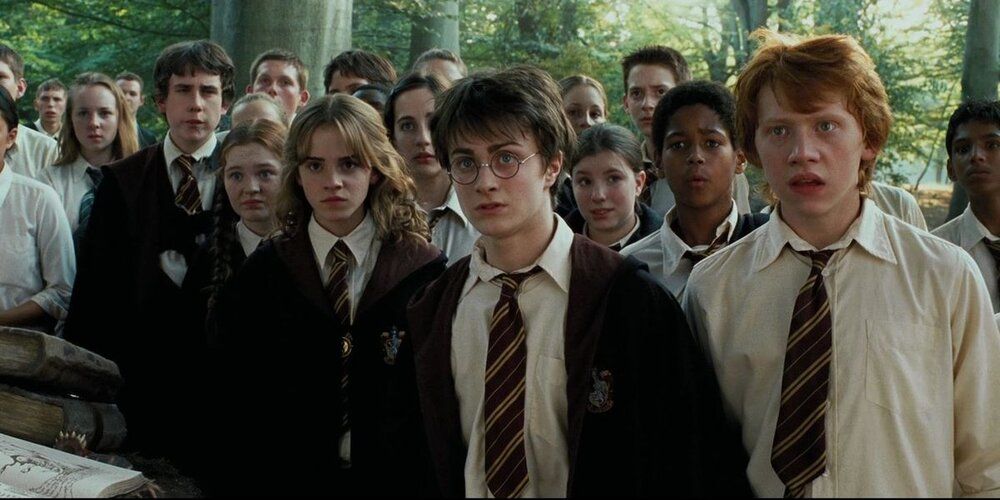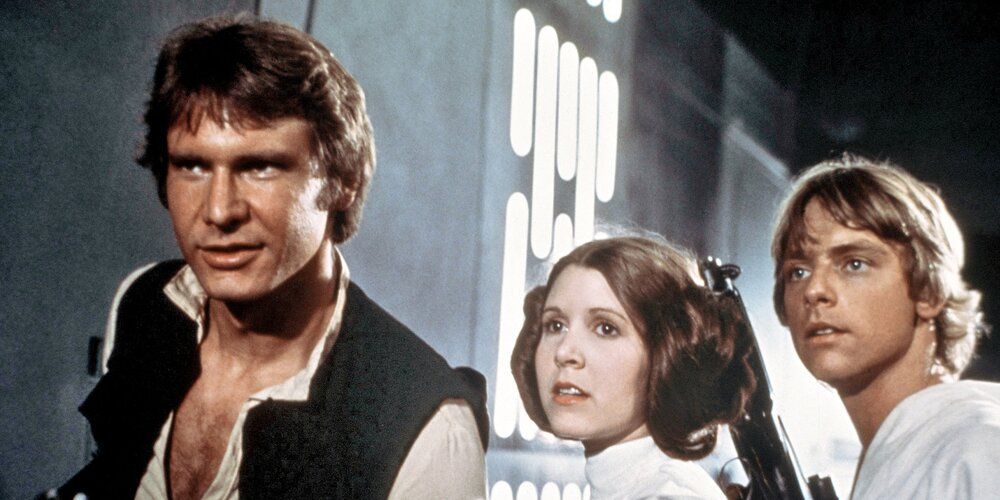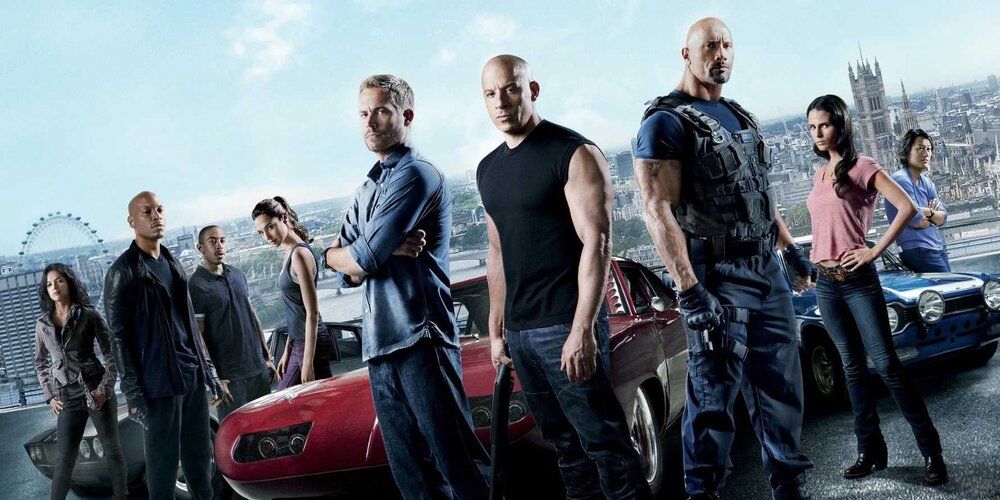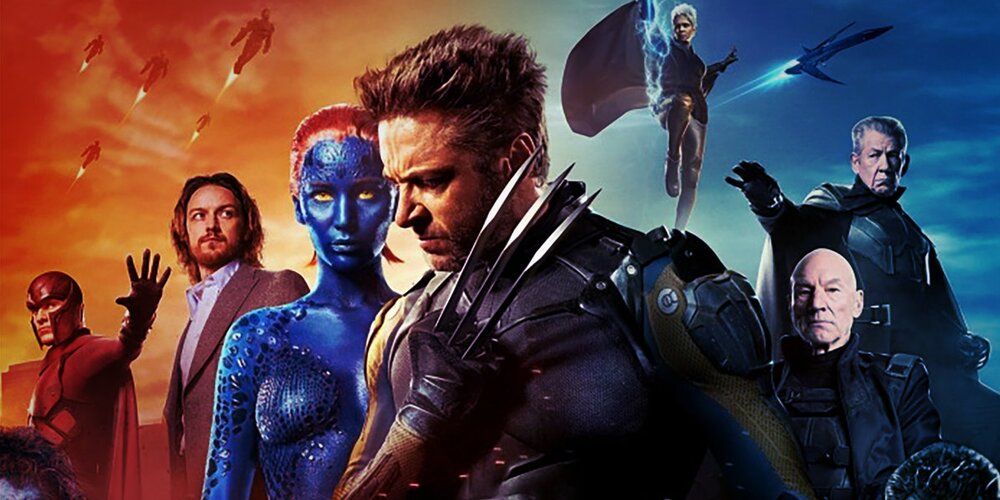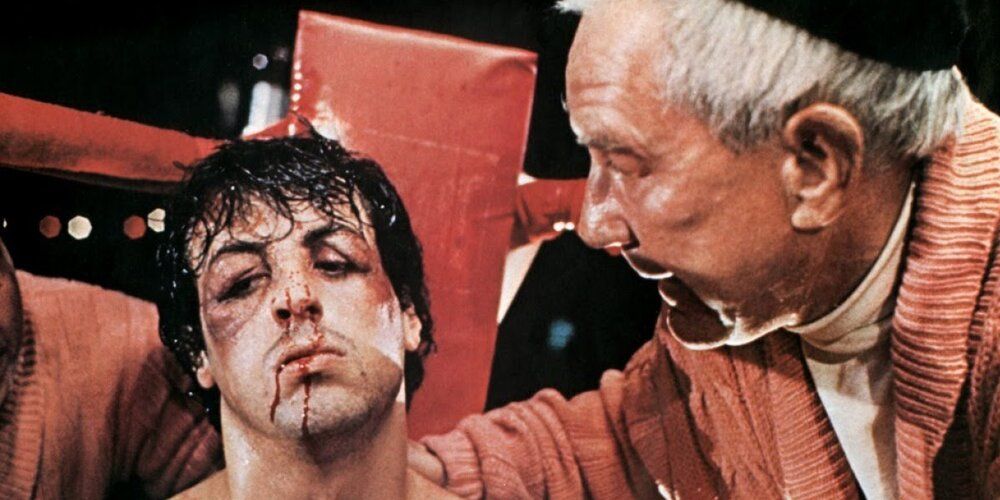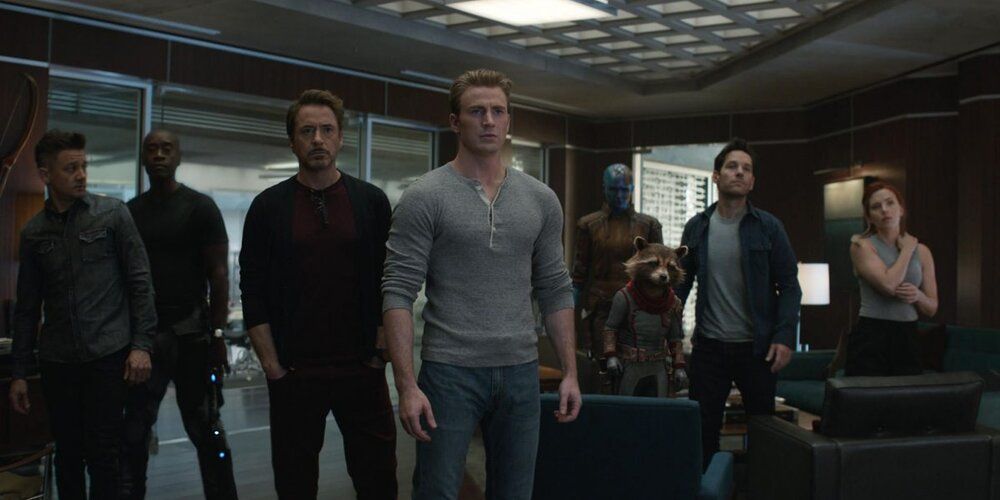Canon and continuity can be difficult things to handle when creating films. Used effectively, they can create epic, long-running story arcs that reward dedicated audiences. However, they can also be restrictive, forcing limitations on films to avoid clashing with anything within the same canon, and punish audience members who have not seen every film.
As a result, many franchises, especially long-running ones, have undergone at least one reboot in their time, a film that strikes out some or all of what came before it and announces itself as the new way forward for the franchise. As a result, it is rare for a film franchise to go a number of years and entries with one consistent continuity, but some manage.
6 Harry Potter Has Lasted Nearly All Of The Twenty-First Century
After the Harry Potter books took the literary world by storm and gave a much-needed boost to the Young Adult genre, it was inevitable that movies would follow. Four years after the first book's publication, Harry Potter and the Philosopher's Stone hit cinemas in 2001 and became a smash hit commercially and critically, including becoming the second highest-grossing film of all time at that point.
The franchise soon followed, with the initial run of eight films concluding in 2011. In 2016, however, a franchise's sub-series, Fantastic Beasts and Where to Find Them, began still within the same continuity. With ten films in total, spanning twenty years, the franchise is expected to continue for at least three more movies.
5 The Star Wars Films Have Survived A Continuity Exile
Released in three trilogies—with some add-ons—across numerous decades, it has been 44 years since the very first Star Wars film, with the franchise still going strong. One of the most popular franchises in the world, the saga of a galaxy far far away does seem to have found its place on television recently, after the controversies of The Rise of Skywalker and The Last Jedi.
Nonetheless, the films alone span eleven entries, plus an animated spin-off, a holiday special, and some direct-to-video entries, stretching from 1977 to 2019. With implications of more movies in the future, Star Wars is in the running as one of the longest-lasting franchises of all time. After the franchise's acquisition by Disney, there was a scouring of continuity, but one that pointedly did not touch the films.
4 Fast & Furious Seems Unsinkable
With fewer films to its name than other entries on this list, the Fast and Furious franchise has nonetheless been present since 2001, putting out movies consistently every two or three years. Despite changing its premise, scope, main characters, and having some wobbly spots of continuity, the films have remained in one canon.
The Fast and Furious franchise's long legs are owed to its popularity with audiences, as the series has received diminishing critical returns for a number of entries now. Nonetheless, with nine full entries and a spin-off—many of which have broken various box office records—the franchise appears to be in it for the long haul, even as jokes about how ridiculous it continues to get build up.
3 Even The X-Men Films' Retcons Are In-Canon
The continuity of the X-Men film franchise can be difficult to reconcile at times, with 2011's X-Men: First Class having all the fingerprints of a reboot, changing the cast, the time period, and the action's main thrust. However, 2014's Days of Future Past reconciled it with the earlier films even as it changed the timeline, revealing the later movies run to be a prequel series to 2000's X-Men and its sequels.
As a result, the franchise, prior to its final outing in 2020 with The New Mutants, ran for twenty years and thirteen films, including the Deadpool spin-offs that loosely occupied the same continuity. Despite a somewhat ignominious end, the franchise nonetheless stood as one of the longest-running, and many are curious to see how the Marvel Cinematic Universe will treat the property.
2 Rocky Balboa Doesn't Quit In The Ring Or The Box Office
A franchise sprung from humble origins in the case of Rocky, with a single film about a tough but unsuccessful boxer leading to sequel after sequel. Sylvester Stallone's strong performance, coupled with well-choreographed boxing scenes and an excellent score saw people turn out in droves to watch the film and its sequels.
Initially, the sequels showed diminishing returns after Rocky II, with the third, fourth, and fifth films considered increasingly disappointing. After a sixteen year-gap, Rocky Balboa found distinctly more success, and the series was reignited by the Creed sub-franchise that is still ongoing, resulting in a film series that is nearly 45 years and counting in one continuity.
1 The Marvel Cinematic Universe Has 26 Films
The currently shortest of the longest-running franchises, the Marvel Cinematic Universe makes up for its later beginnings with a sheer volume of films, currently totaling 26, with more on the way. Beginning in 2008 with Iron Man, the franchise has come to dominate pop culture and shows no signs of letting up the pace.
The series' continuity within one canon—despite some earlier fumbles, and some potential fudging with an in-universe multiverse—is considered one of its greatest strengths, sparking constant fan discussion and theorizing. Nonetheless, with so many films, most of which are increasingly interconnected, it has also been suggested to make the series hard to get into for newer audiences.

